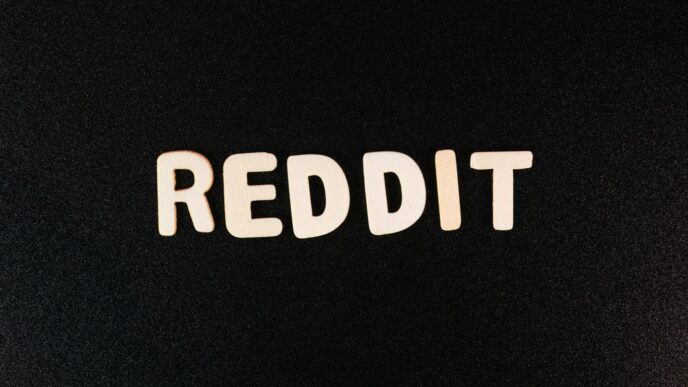So, Google and the DOJ. It’s been a big deal, this whole antitrust ruling thing. Basically, a judge said Google was playing unfair with its search engine, kind of like a bully. This isn’t just some small-time spat; it’s a major legal battle that could change how the internet works and how big tech companies do business. We’re talking about billions of dollars and the future of online search and maybe even AI.
Key Takeaways
- A judge ruled that Google’s search practices were anticompetitive, confirming the DOJ’s case. This means Google’s dominance in search has been legally challenged.
- The court is now deciding on remedies, with the DOJ proposing big changes like breaking up parts of Google’s business, while Google wants less drastic fixes.
- A big part of this is Google’s deal with Apple, where Google pays billions to be the default search engine. Any changes here could seriously impact Apple’s income.
- The ruling aims to boost competition, potentially affecting how Google handles exclusive deals and how it might share data with rivals, even impacting its AI products.
- This case sets a precedent for future antitrust actions against tech giants, drawing parallels to the old Microsoft case and signaling a tougher stance on market monopolies.
The Landmark Antitrust Ruling Against Google
So, a judge has officially said Google’s search engine has been playing unfairly. U.S. District Judge Amit Mehta handed down a decision that basically confirms what a lot of people have suspected for a while: Google has been using its massive size to keep competitors down. This isn’t just some small-time disagreement; it’s being called the biggest antitrust case in a quarter-century, and it could really change how the internet works.
Google’s Anticompetitive Search Practices Affirmed
The core of the issue is how Google makes sure its search engine is the default on pretty much every phone and device you buy. We’re talking billions of dollars spent each year to lock in these deals. The Justice Department argued that this practice, along with others, stops other search engines from even getting a chance to show what they can do. This ruling says Google’s dominance has been used to stifle innovation and competition. It’s like a race where one runner is given a huge head start and a clear path, while everyone else has to fight through obstacles.
Judge Mehta’s Decision and Its Implications
Judge Mehta reviewed a ton of evidence and testimony. His decision focused heavily on those billions Google spends to be the default search option. He’s not forcing Google to sell off its Chrome browser, which is a big deal, but he is saying the company has to stop these exclusive deals that make it the automatic choice on devices. He also wants Google to share some of its search data with other companies and set up a committee to watch what they do for the next six years. This is a significant step in the ongoing fight to stop Google from monopolizing the digital public square [c8c9].
The DOJ’s Case Against Google’s Monopoly
The Justice Department’s argument was pretty straightforward: Google’s monopoly power means they can charge advertisers too much and don’t have to bother improving their search results as much because people don’t have many other options. They painted a picture of Google as a company that has actively worked for years to block competition, especially in the digital advertising space. This ruling is a win for them, showing that even huge tech companies have to follow the law. The DOJ believes this decision will help restore competition in the search engine market and ultimately benefit consumers.
Navigating The Remedies Phase
So, Google lost the antitrust case. The judge basically said their search practices were anticompetitive. Now comes the really interesting part: what happens next? This is the remedies phase, where the court decides what Google actually has to do about it. It’s not just about saying they did something wrong; it’s about fixing it.
DOJ’s Proposed Structural Changes
The Department of Justice isn’t playing around. They’ve put forward some pretty serious proposals. Think big, structural changes that could really shake things up. One of their main asks is to break up Google’s lucrative deal with Apple. You know, the one where Google pays Apple billions every year to be the default search engine on iPhones and iPads? The DOJ wants that gone. They also want Google to be prohibited from making exclusive deals for distributing its search engine, Chrome, and other apps like Google Assistant and Gemini. Basically, they want to pry open the market that’s been pretty much locked down by Google for years. They’re also pushing for Google to share certain search data with rivals, which could help smaller companies compete more effectively.
Google’s Counter-Proposals for Remedies
Google, understandably, has a different idea of what’s fair. Their proposals are much more about tweaking things rather than tearing them down. They’re suggesting things like making it easier for users to choose their default search engine, but without breaking up any core parts of their business. They don’t want to lose that massive revenue stream from Apple, for example. Google argues that its current structure is what allows it to innovate and provide the services people want. They’re likely going to fight hard against any forced divestitures or major structural changes. It’s a classic case of the government wanting a big fix and the company wanting a minor adjustment.
Upcoming Judicial Decisions and Their Weight
This is where things get really tense. Judge Amit Mehta is expected to make his final decision on the remedies soon. This ruling could have massive implications. If the judge sides with the DOJ and orders significant structural changes, it could fundamentally alter Google’s business. Losing the Apple deal alone would be a huge financial hit, potentially impacting Apple’s revenue quite a bit. On the other hand, if the judge goes with Google’s more lenient proposals, the impact might be less dramatic. The court’s decision here will set a significant precedent for how antitrust cases against major tech companies are handled in the future. It’s a big moment, and everyone is waiting to see what the judge decides. The remedies phase has concluded after 11 days in court, and now we wait for the judge’s decision.
Financial Ramifications Of The Ruling

This whole antitrust situation with Google is a pretty big deal, and it’s not just about legal stuff. There’s a ton of money involved, especially when you look at how Apple and Google work together. It’s like a really important handshake between two giants, and if that handshake gets messed up, things could get messy financially.
The Lucrative Apple-Google Search Agreement
So, Google pays Apple a boatload of cash every year. We’re talking around $28 billion annually. This money comes from Google being the default search engine on iPhones and other Apple devices. It’s a huge chunk of change for Apple, and it’s a pretty sweet deal for Google too, keeping them front and center for millions of users. This agreement is basically the golden goose for Apple’s services division.
Potential Revenue Impact for Apple
If the court forces Google and Apple to change this deal, or even end it, Apple could see a significant hit to its income. Some folks who watch the markets think Apple might lose about $9.5 billion in earnings each year. That’s a pretty big number, and it could mean a nearly 12% drop in their profits. It makes you wonder how much of that is already baked into Apple’s stock price, or if investors are still a bit in the dark about the real risk.
Estimating The Financial Fallout
It’s tough to say exactly how much this will all shake out. Google will likely appeal any decision that goes against them, so it won’t be an overnight change. But even the possibility of this deal changing could make investors nervous. Apple’s stock has been doing well, but if its earnings take a hit, that could change things fast. It’s a complicated picture, with Apple investing in new things like AI, but that might not be enough to cover a loss this big if it happens. Basically, everyone’s watching to see what the judge decides, and then what happens next.
Impact On Google’s Business Structure
This whole ruling really shakes things up for Google, not just in terms of how it makes money, but how its whole business is put together. It’s like the judge looked at the company and said, ‘Okay, you’ve been doing some things that aren’t fair, and we need to change how you operate.’
Prohibiting Exclusive Distribution Contracts
One of the biggest changes is that Google can’t make deals anymore that lock out other companies. This means they can’t force phone makers or computer companies to only put Google Search, Chrome, or their other apps like Google Assistant and Gemini front and center. They also can’t say, ‘You get this app if you also take that app,’ or make deals that tie up a search engine spot for more than a year. Plus, they can’t stop partners from offering other search engines or AI products alongside Google’s.
- No more conditioning app licenses on distributing Google Search.
- Can’t tie revenue sharing for one app to the placement of another.
- Partners are now free to offer competing search and AI products.
Data Sharing Requirements for Rivals
It’s not just about what Google can’t do, but also what it has to do. The ruling says Google needs to share some of its search data and information about how people use search with its competitors. They also have to offer services that let rivals show search results and ads. This is a pretty big deal because it opens the door for other companies to actually compete by giving them the tools and information they need to build better services.
The Future of Google’s Search and AI Products
So, what does this all mean for Google’s core products, especially with AI becoming such a huge thing? The company’s dominance in search has been built on making sure it’s the default choice everywhere, and that’s exactly what the ruling is targeting. Now, with rivals potentially getting better access to data and the ability to be featured more easily, we might see more variety in search results and AI tools. It’s going to be interesting to see how Google adapts its strategies for its search engine and its developing AI products in this new, more open environment. It could mean a lot more competition, which, honestly, is probably good for all of us using these services.
Precedent And Future Legal Battles
Lessons from the Microsoft Antitrust Case
This whole situation with Google really brings back memories of the big antitrust fight with Microsoft back in the late 90s. Remember how the government went after them for bundling Internet Explorer with Windows? It felt like a huge deal then, and it definitely changed how Microsoft operated. The core idea was that a dominant company shouldn’t use its power in one area to crush competition in another. For years, people debated whether that case actually did enough to spur real competition or if it just made things more complicated. It’s a good reminder that these big tech cases aren’t just about one company; they can shape the entire industry for a long time. We’re seeing echoes of that now, with regulators looking closely at how Google uses its search dominance to push other services.
Google’s Stance on Appeals
So, Google isn’t exactly thrilled with Judge Mehta’s decision, and they’ve made it pretty clear they plan to fight it. They’ve said they disagree with the ruling and will be appealing. It’s pretty standard stuff for a company facing a judgment like this. They’ll likely argue that their practices are just good business and that the DOJ is overreaching. It’s going to be a long road, though. Appeals can take years, and during that time, the current situation largely stays in place, at least until a higher court makes a final call. This means the uncertainty around the remedies will continue for a while.
The Ongoing Fight for Market Competition
What does all this mean for the future? Well, this case is a big signal to other tech giants. It shows that regulators are serious about looking into market dominance, especially in areas like search and advertising. We’re already seeing other lawsuits and investigations targeting big tech companies. It feels like we’re entering a new era where these companies can’t just operate without serious scrutiny. The goal, at least from the government’s perspective, is to make sure there’s a more level playing field so smaller companies and new ideas have a real shot. It’s a complex balancing act, trying to encourage innovation while also preventing monopolies from stifling it. The outcome here will definitely influence how these battles play out for years to come.
Broader Market And Consumer Effects
This whole antitrust situation with Google isn’t just about one company or one judge’s decision. It’s got ripples going out to a lot of other places, affecting how other tech companies do business and, honestly, what we as regular folks see when we go online. It feels like regulators are finally taking a closer look at how much power these big tech players really have.
Restoring Competition in the Search Engine Market
For years, Google has pretty much owned the search engine game. This ruling is supposed to shake things up and give other search engines a better shot. Think about it:
- Default Search Deals: Google has been paying billions to be the default search engine on phones and browsers. The court might stop this, meaning other search engines could get a fairer chance to be chosen.
- Innovation Boost: When there’s more competition, companies usually have to get more creative to win people over. This could lead to better search results or new features we haven’t even thought of yet.
- Smaller Players: It might open doors for smaller search engines or specialized search tools to gain some traction, offering different ways to find information.
Concerns Over Consumer Choice and Privacy
While the idea of more competition sounds good, there are definitely some worries. What does this mean for us?
- Data Use: If Google has to share more data or change how it operates, how will that affect our privacy? Will our search history be handled differently?
- User Experience: Will changing the default search engine actually make a difference for most people? Many users just stick with what’s already there, so will this really change much in practice?
- Information Quality: If search results are influenced by who pays for what, or if new search engines aren’t as good at finding information, it could make it harder to get reliable answers.
The Shifting Landscape of Online Advertising
Online ads are how a lot of the internet stays free, and Google is a huge player in that market. This ruling could change things:
| Area of Impact | Potential Change |
|---|---|
| Ad Auction Dynamics | Google might have less control over how ads are placed and priced. |
| Advertiser Costs | This could lead to lower ad costs for businesses, or maybe just a different cost structure. |
| Publisher Revenue | Websites that rely on ads might see their income change, for better or worse. |
Ultimately, the goal is to make the online world a bit more balanced, but how that plays out for everyday users and the businesses that advertise online is still very much up in the air. It’s a complex situation, and we’ll likely be seeing the effects of this ruling for a long time to come.
What Happens Next?
So, the judge made a call, saying Google played unfairly. Now, everyone’s waiting to see what happens next. The government wants big changes, like breaking up some of Google’s deals, especially the one with Apple that brings in billions. Google, though, thinks that’s too much and wants to make smaller tweaks. It’s a real head-scratcher, and honestly, it feels like this whole thing could drag on for ages with appeals. What this means for your everyday internet use, or for Apple’s bank account, is still up in the air. We’ll just have to wait and see how this legal drama plays out.
Frequently Asked Questions
What was the big court decision about Google?
A judge decided that Google unfairly used its power as the most popular search engine to stop other search engines from growing. This means Google broke competition rules. The court said Google’s actions hurt other companies and potentially consumers.
What did the government want Google to do?
The government, called the Department of Justice (DOJ), asked for big changes. They wanted Google to break apart some of its business, like maybe selling its Chrome browser. They also wanted Google to share important search data with competitors to help them compete better.
What did Google say about the ruling?
Google disagreed with many of the government’s ideas. They argued that breaking up their business would hurt innovation and consumers. While they agreed to stop making exclusive deals that favored their search engine, they fought hard against selling off parts of their company or sharing sensitive data.
How might this affect Apple?
Google pays Apple billions of dollars every year to be the default search engine on iPhones and other Apple devices. If this deal changes or ends because of the court’s decision, Apple could lose a lot of money, which might affect their profits.
Will this change how I use Google?
It’s possible, but maybe not right away. The judge made some decisions about what Google has to do, but didn’t order the company to break up its biggest parts like Chrome. Google might have to change how it makes deals with phone makers, and they might have to share some data. The company is also considering an appeal, which could take a long time.
Is this the first time a big tech company faced this kind of lawsuit?
No, this is similar to a big case against Microsoft back in the late 1990s. That case also involved accusations of using a dominant product (Windows) to unfairly push out competitors (like web browsers). The Google case is seen as a modern version of that fight to keep the tech market fair.












